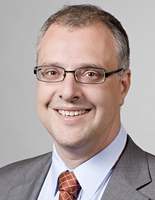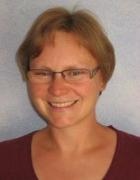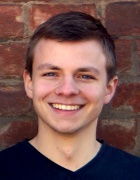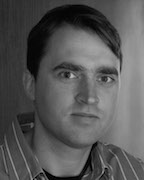Zellbiophysik
Prof. Andreas Bausch
Forschungsgebiet
Understanding complex biomaterials on a fundamental physical basis is an integral challenge of future biophysical research. This challenge can be addressed by the concerted application of new experimental tools of soft condensed matter physics to living cells and bio-mimetic model systems. In our group we concentrate on the one hand on developing new physical tools to address the underlying complexity and mechanisms and on the other hand on developing new biomaterials for applications ranging from biomedicine to functional food.
Adresse/Kontakt
Ernst-Otto-Fischer-Straße 8/III
85748 Garching b. München
+49 89 289 12408
Fax: +49 89 289 14469
Mitarbeiterinnen und Mitarbeiter der Arbeitsgruppe
Professor
| Photo | Akad. Grad | Vorname | Nachname | Raum | Telefon | |
|---|---|---|---|---|---|---|

|
Prof. Dr. | Andreas | Bausch | 010 | +49 89 289-12480 |
Sekretariat
| Photo | Akad. Grad | Vorname | Nachname | Raum | Telefon | |
|---|---|---|---|---|---|---|

|
Katerina | Girgensohn | 011 | +49 89 289-12408 |
Wissenschaftlerinnen und Wissenschaftler
| Photo | Akad. Grad | Vorname | Nachname | Raum | Telefon | |
|---|---|---|---|---|---|---|

|
M.Sc. | Walter | Bleicher | – | – | |

|
Dr. | Lisa | Engelbrecht | – | +49 89 289-51618 | |

|
M.Sc. | Fabian | Englbrecht | – | +49 89 289-12483 | |

|
M.Sc. | Ann-Caroline | Heiler | – | +49 89 289-51618 | |

|
M.Sc. | Arsenii | Hordeichyk | – | – | |

|
Dr. | Chiao-Peng | Hsu | – | +49 89 289-12487 | |

|
M.Sc. | Franz | Hutterer | – | +49 89 289-12483 | |

|
M.Sc. | Sophie | Kurzbach | – | +49 89 289-12483 | |

|
M.Sc. | Timon | Nast-Kolb | – | +49 89 289-12487 | |

|
M.Sc. | Marion | Raich | – | +49 89 289-12483 | |

|
M.Sc. | Samuel | Randriamanantsoa | – | +49 89 289-12483 | |

|
M.Sc. | Dominik | Ritzer | – | +49 89 289-12487 | |

|
Dr. | Claudio | Rolli | – | – | |

|
M.Sc. | Iris | Ruider | – | +49 89 289-51618 | |

|
Ph.D. | Daphné | Vannier | – | +4989 289 51618 |
Studierende
| Photo | Akad. Grad | Vorname | Nachname | Raum | Telefon | |
|---|---|---|---|---|---|---|

|
B.Sc. | Sandra-Hannelore | Andrusca | – | – | |

|
B.Sc. | Léa | Dury | – | – | |

|
B.Sc. | Florian | Stratmann | – | – | |
Andere Mitarbeiterinnen und Mitarbeiter
| Photo | Akad. Grad | Vorname | Nachname | Raum | Telefon | |
|---|---|---|---|---|---|---|

|
Dr. | Christina | Glantschnig | – | – | |

|
Thi-Hieu | Ho | 021 | +49 89 28951608 |
Lehrangebot der Arbeitsgruppe
Lehrveranstaltungen mit Beteiligung der Arbeitsgruppe
Abgeschlossene und laufende Abschlussarbeiten an der Arbeitsgruppe
- Active Force on Giant Unilamellar Vesicles with Reconstituted Focal Adhesion Complexes
- Abschlussarbeit im Masterstudiengang Physik (Biophysik)
- Themensteller(in): Andreas Bausch
- Development of cellulose-based bioink for cardiac tissue engineering
- Abschlussarbeit im Bachelorstudiengang Physik
- Themensteller(in): Andreas Bausch
- Early Classification and Cell Fate Prediction of Human Induced Pluripotent Stem Cells (hiPSCs) during Differentiation into Cardiac Cell Types with Deep Learning
- Abschlussarbeit im Masterstudiengang Biomedical Engineering and Medical Physics
- Themensteller(in): Andreas Bausch
- Microfluidic Study of Model Membrane System
- Abschlussarbeit im Masterstudiengang Biomedical Engineering and Medical Physics
- Themensteller(in): Andreas Bausch